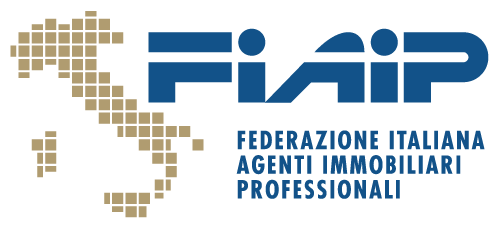Would you like to buy a property in Italy, but you have no idea where to start? Here is a good guide to understand how it works!
Purchasing a property in Italy is not impossible, don't worry. But you need to have all the information to know how to move around step by step.
How to Buy a property in Italy
The choice First of all it is important to establish the BUDGET you have available, if it is necessary to get financing , getting “pre-approved” is a good idea, so you realistically know the maximum amount of funds for a mortgage available to you. Keep in mind that it is quite difficult for foreigners to get a mortgage in Italy unless they have been resident in Italy for over 3 years. Many buyers have found it easier to refinance properties they own at home to get funds for an Italian home. Availability will depend on your age, work situation and credit rating. Make sure you consider another 10-15% for taxes, closing costs plus budget your travel expenses.
Once you have a budget, make up your wish list, indicating priority: those elements that are necessary and those you dream having, but could live without. It is worthwhile having a look at websites so as to understand the property market at the price you have established. Useless to say that if 2-bedroom, 2-bathroom properties in the area you are interested in cost 3000 euros per square meter or start at 220.000 euros and your budget is Euro 100.000, you need to rethink. The alternative can be to change zone, buy a house that needs work and do the absolute minimum or size down. Sometimes bargains do exist but if a property sounds too good to be true, most probably there is a reason why.
If you are buying as an investment and want to rent, remember that LOCATION is probably the most important factor.
Finding a property Make sure you leave yourself enough time, many properties on the market are still inhabited by the sellers, so avoid trying to see listings on holidays and weekends. Between finding a property and making an offer leave yourself 10-15 days minimum as you will need to get an Italian tax number and open an Italian bank account for the buying transactions. Try to set up appointments the week before you arrive.
Nowadays it is possible to find shared listings, so the first step is to find a REGISTERED REAL ESTATE AGENCY, who will guide you through the process of finding and buying a property. The agent can represent both buyer and seller in which case he is acting as an intermediary and will therefore be paid both by the buyer and seller. Another possibility is to choose an English-speaking realty agent who will act as your “mandatario” in which case they represent only you and will be paid only by you as a buyer. This may cost you a slightly higher fee, but it will give you the option of seeing many more properties. You must choose an agent to represent you before visiting properties or automatically you will owe commission to the agency that shows you the property.
What to check before buying a property In Italy once you have made an offer it is binding, any and all details regarding the condition of the property must be checked before making the offer. In Italy, for the sale of a property the only necessary requirements are that it be correctly represented in the deposited floor plans and property registries and that it respects urbanistic and zoning laws. The only exception are new properties bought directly from the builder who must guarantee heating, plumbing and electric systems as they are band new.
The paperwork Most Agencies have a basic form they personalize for each proposal to buy, indicating the buyers needs and requests: indicating if financing is needed, the date by which the deed must be completed and the keys handed over to the buyer, how and when payments will be made, if any furnishing are being sold together with the property, etc. A goodwill deposit or “caparra” accompanies the signed proposal and is left with the real estate agent. The seller has an established date by which he can accept the proposal and collect the caparra or deposit. The owner can also make a counterproposal that then goes back to the buyer for acceptance .Once the seller has accepted and signed a proposal and collected the deposit the proposal becomes an actual binding contract or the preliminary contract that can be registered at the tax office at the buyers expense.
In Italian, this is the Contratto preliminare (also called compromesso) and it must contain all the details that will be repeated in the deed or closing. The important elements are: the buying price un Euros, the official data of the property (address, floor, number of rooms, the cadastral registry data) as well as the date by which the closing will occur, as well as the buyers and sellers personal information( full legal name, marital status, permanent address and Italian tax numbers). For properties still under construction it is necessary to define the state in which the property will be sold and when the property will be handed over to the buyer. In many cases it is not necessary to have a Notary write up the preliminary contract, but it is a good idea if there are conditions. For example: A large sum for deposit, a long period between the acceptance of the proposal and the deed or closing, or if you just feel more comfortable using a notary.
The Notary might suggest the “trascrizione” of the preliminary contract at the property registry, this makes it impossible for the owner to sell to another buyer, or to mortgage the property. It is quite expensive to do this and is a buyer’s expense which is the reason it is usually done only in cases where there is a complicated situation
The “registrazione” of the contract is another matter and costs 0,50% of the caparra or deposit and 3% of all the sums paid before the deed but these sums, except for the euro 200 fixed fee, will be deducted from the property taxes owed at closing.
The difference between “trascrizione” e la “registrazione” of the preliminary contract.
The “registrazione” of the compromesso or preliminary contract is a fiscal obligation and registration, it must be paid within 20 days of the signing of the agreement. It is a tax obligation in other words.
The “trascrizione” makes the agreement public, as it is registered in the public property registries (Conservatoria) it serves so that no one else can make claims on the property. It is not obligatory.
There are several kinds of payments a buyer makes to the seller: at the proposal usually the buyer pays the confirmatory deposit or “caparra confirmatoria” which serves as a determent to both parties from withdrawing from the deal. If the buyer withdraws, he loses the deposit, if the seller withdraws, he owes twice the sum of the deposit back to the buyer. There are also down payments or “conto prezzo” which become payments towards the closing price but must be returned to the buyer if the sale is not concluded. A third kind of payment called “caparra penitenziale” or penitential deposit serves as a reimbursement to the seller in the case the buyer can no longer buy the property. Not used very often.
ALL payments, for the sake of transparency, must be made with non-transferable checks, bank drafts or wires from an Italian bank. It is therefore necessary to have an Italian bank account, so all monies can be traced back to the buyers account.
The Notary - Custom is that the buyer choses the Notary, as he is the one who pays the notaries bill and deposits the taxes monies on the sale. The Notary’s function is to write up a deed that coincides with the buyers and the sellers needs, he guarantees that the sale is respecting Italian law., he checks all the personal documents and the paperwork on the property, he writes up the deed, any preliminary contracts and mortgage contracts where required, he also calculates, collects and pay the taxes due on the property sale.
It all sounds extremely complicated, as an international real estate agency, Milligan & Milligan will guide you through all the bureaucracy and provide you with a choice of notaries, professionals, translators, We will help you furnish and move into your new home.
here is a link to send us a wish list of the property you dream of buying in Italy
![]() Potential buyer - List of criteria
Potential buyer - List of criteria




